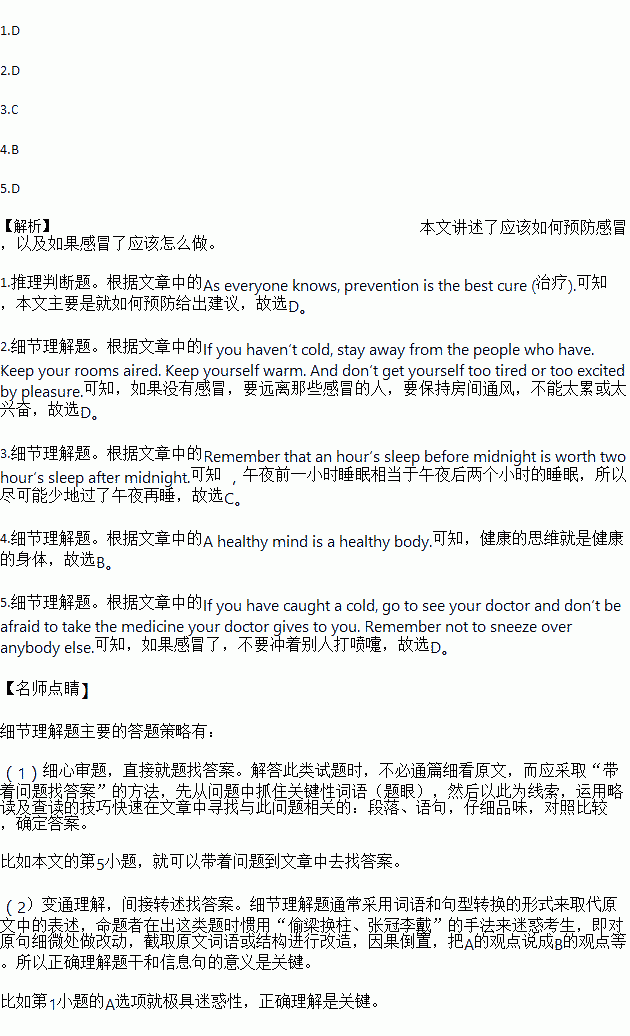题目内容
This is the Radio Doctor with another word of advice on how to keep yourself healthy and how to keep away from doctors. As everyone knows, prevention is the best cure (治疗). If you haven’t cold, stay away from the people who have. Keep your rooms aired. Keep yourself warm. And don’t get yourself too tired or too excited by pleasure. Remember that an hour’s sleep before midnight is worth two hour’s sleep after midnight. Don’t get yourself too sad or too excited. A healthy mind is a healthy body. If you have caught a cold, go to see your doctor and don’t be afraid to take the medicine your doctor gives to you. Remember not to sneeze over anybody else. Those little viruses (病素) enjoy nothing better than taking a free ride through the air into anybody else. In this way he will get a cold.
1.The Radio Doctor’s advice today is to tell people ________.
A. how to stay away from doctors
B. what to do to keep themselves healthy
C. . how to have a nice sleep
D. how to prevent themselves from catching a cold
2.In order not to catch a cold, you should ________.
A. stay away from the people who have a cold
B. keep your room aired
C. not to get too tired or too excited
D. all the above answers together
3.The Radio Doctor also advises people to ________.
A. go to bed early
B. sleep less before midnight
C. sleep less after midnight
D. get up early in the morning
4.A healthy person usually has________.
A. a clever mind B. healthy mind
C. quick mind D. pleasant mind
5._______ if you have caught a cold.
A. Don’t meet anybody B. Don’t talk to anybody you meet
C. Stay at home alone D. Don’t sneeze over anybody else

